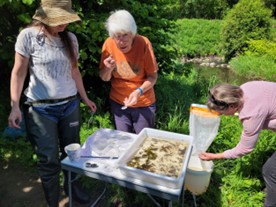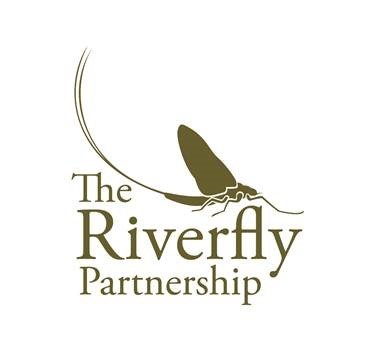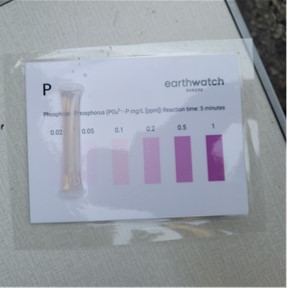This year we joined the citizen science project, Guardians of our Rivers, which sets out to monitor the abundance of different groups of invertebrates that live in the riverbed. The presence of these organisms act as biological indicators of water quality, and can provide an early warning of pollution events or detrimental changes in our rivers.

www.buglife.org.uk/news/buglife-scotland-launches-guardians-of-our-rivers/
Buglife, the invertebrate conservation charity, provided us with free training and all the equipment needed to carry out the surveys. This was delivered by Rebecca Lewis, their conservation officer, who trained us on-site at the Breich Water river. Our group of volunteers then became a team of 6 fully certified surveyors!

The monitoring itself involves counting the larvae of riverflies, which spend most of their lives in the river before emerging into their winged adult forms. We also look for freshwater shrimp, and keep a close eye for any invasive species such as killer shrimps. The samples are collected by kicking up sediments from the riverbed and catching the invertebrates in a net.

After sorting, they are counted and given a score. Doing this regularly builds up a picture of what is normal for our river and the data gets recorded in the Riverfly Partnership national database which is hosted by the Freshwater Biological Association.
If these counts fall below a certain threshold, it can then prompt an investigation by the Scottish Environmental Protection Agency (SEPA).
We carry out the survey on the first Sunday of the month, from April to September. If you see us out surveying, please feel free to stop and chat and take a look at what we are doing!
We have also received funding from Accenture to join the FreshWater Watch project for a year! This is a global citizen science project developed by the environmental charity Earthwatch Europe. You can find out more here: https://www.freshwaterwatch.org/

The project enables us to monitor the levels of nitrates and phosphates in our rivers and pond using simple chemical tests. These compounds can indicate pollution coming from wastewater treatment plants, industry or from agricultural practices. This information, together with other ecological data, can be used to inform land management practices that can benefit our freshwaters.
We were also able to buy equipment and testing materials to let us collect data on parameters such as oxygen levels and pH. The information will allow us to monitor and detect changes in our freshwater sites, and give us a fuller picture of the condition of the pond and rivers in and around Easter Breich Wood.
If you’d like to know more about these projects or to get involved and become a certified River Guardian yourself, please email us at easterbreichwood@gmail.com.
